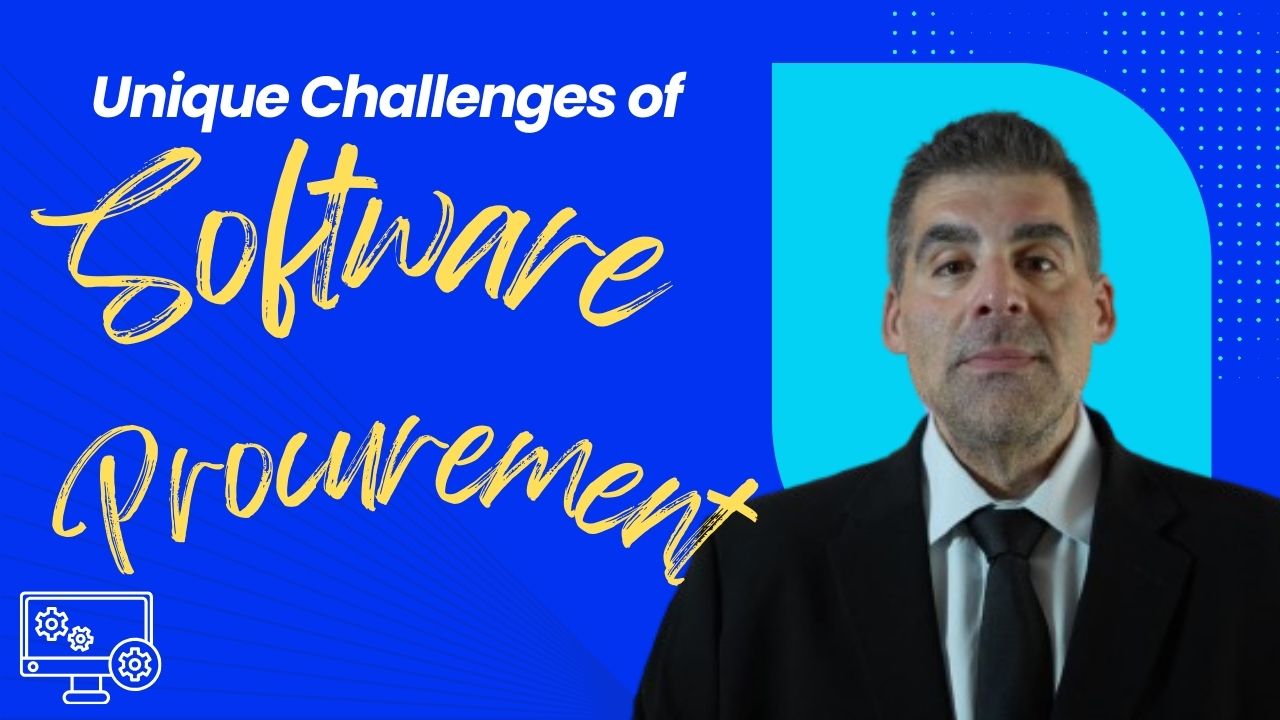Software has become an integral part of modern businesses, yet its procurement presents unique challenges. In this video, we’ll explore the complexities of software procurement and why it differs from traditional procurement strategies.
- Ubiquity of Software: Software is everywhere, used for various purposes and by diverse stakeholders. This makes it difficult to develop a unified procurement strategy.
- Lack of Standardization: Unlike tangible goods, software often lacks standardization, making direct comparisons and apples-to-apples bidding difficult.
- Security and Functional Needs: The importance of security and specific functional requirements in software can further complicate procurement processes.
Join me as I discuss strategies to overcome these challenges and effectively procure software for your organization.






